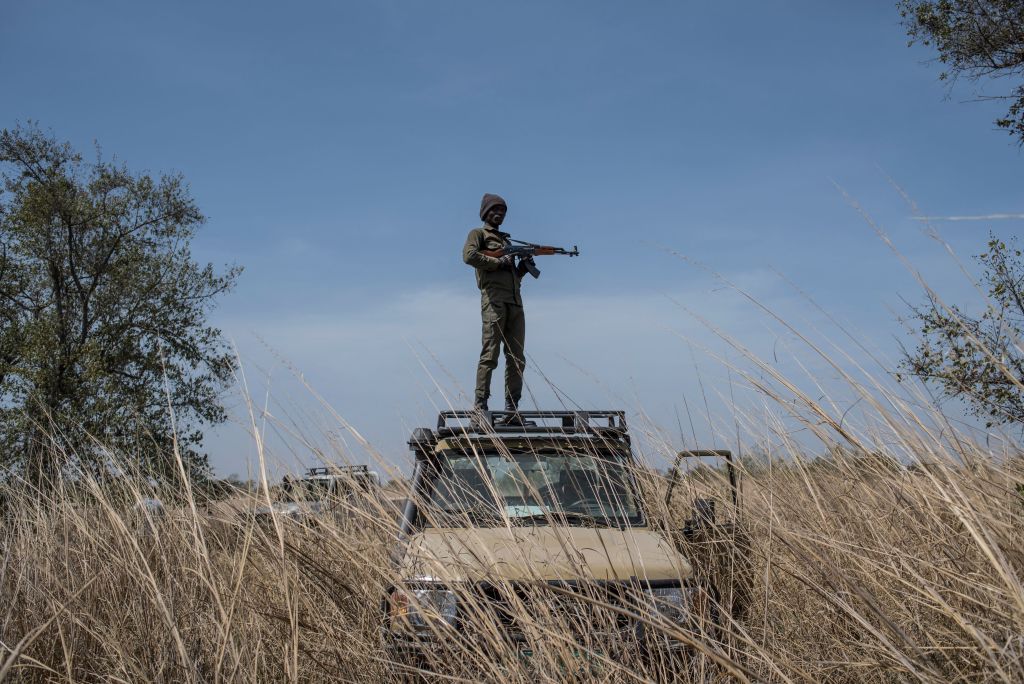ADF STAFF
Terrorists in Benin’s W National Park have killed at least seven Beninese security forces and five rangers working with a nonprofit organization.
No terror group claimed responsibility for the July 28 attack near Benin’s borders with Burkina Faso and Niger, but organizations linked to al-Qaida and the Islamic State group operate in the park and around the region.
On July 20, the al-Qaida-affiliated Jama’at Nusrat al-Islam wal-Muslimin (JNIM) attacked a northern Togo Army barracks near the Burkina Faso border, killing six people and seizing weapons. At the time, JNIM also claimed responsibility for attacks on eight military operations in Burkina Faso, Mali and Niger, saying it had killed more than 22 troops in four days.
These attacks confirm the fears of analysts who for years have warned of the spread of violent extremism from the Sahel region into West Africa.
According to a July report by the Africa Center for Strategic Studies (ACSS), the annual number of violent events linked to militant Sahelian groups in and within 50 kilometers of coastal West African countries increased by more than 250% over the past two years, with more than 450 incidents.
Benin has been the West African nation hardest hit by the violence. The number of fatalities related to Islamist violence in Benin doubled to 173 in the past year, the ACSS reported. The percentage of increased fatalities was similar in Togo, which recorded 69 deaths.
Igor Kassah, a priest in northern Benin, told The Associated Press (AP) that he had answered threatening phone calls and that Islamic extremist diatribes were tacked on the doors of his church demanding that people leave.
“We no longer have a normal life,” Kassah said in late 2022, the year when attacks in Benin spread into more populated areas, pushing the Beninese military from the northern border. “It’s hard to talk and act confidently because you don’t know who’s in front of you anymore.”
Insecurity in coastal West Africa has been particularly pronounced in border regions and jointly protected areas such as the W-Arly-Pendjari, or WAP, complex of parks, according to the ACSS.
The complex includes territory in Benin, Burkina Faso and Niger, and is near Ghana, Nigeria and Togo. Its transboundary location poses a complex regional security challenge that also affects Côte d’Ivoire, Ghana, Guinea, Mauritania and Senegal.
Regional experts say coastal West African states and the international community have not learned enough from the Sahel crisis about addressing the insecurity.
“There’s an opportunity to choose a different route for littoral countries in addressing the crisis, focusing on the drivers of violence and what pushes people into these armed groups, such as unresolved grievances, social marginalization, and poor governance of natural resources,” Laura Sanders, founder of Cetus Global, a consulting company based in Benin that focuses on conflict prevention in West Africa, told the AP.
ACSS research fellow Daniel Eizenga and Amandine Gnanguênon, a senior fellow and head of the geopolitics program at the Africa Policy Research Institute, called for coastal West African countries to formulate a multitiered strategy and institutionalized approach to enhance local, national and regional responses to violent extremism.
The top priority, they argued in the July ACSS report, should be for local community leaders and government agencies in border areas to strengthen community resilience and develop specific actions to limit opportunities for violent extremism to grow. This may reduce the possibility of governments inadvertently exacerbating grievances.
National governments can support those efforts with initiatives to protect and support regional interests.
Eizenga and Gnanguênon highlighted the Accra Initiative as another layer of support to national efforts. The initiative, formed in 2017 by Benin, Burkina Faso, Côte d’Ivoire, Ghana and Togo, focuses on military training, cross-border military operations, and information and intelligence sharing.
In late 2022, the initiative agreed to assemble a multinational military force to help stop the spread of violent extremism into West Africa.
In late May, the United Nations Development Program (UNDP), in partnership with the Kofi Annan International Peace Keeping Training Centre (KAIPTC) in Ghana and with funding from Japan’s government, launched a project aimed at strengthening the initiative’s capacities and promoting its implementation.
“In the face of threat of violent extremism, collaborating with all stakeholders is our best way of preventing violent extremism and fostering peace within our subregion,” Patience Agyare-Kwabi, director of the Women, Youth, Peace and Security Institute at KAIPTC, said in a UNDP report.
The Economic Community of West African States (ECOWAS) adds another layer of international support by facilitating policy and information sharing across the region and may also provide financial and other assistance to the front-line countries. It can deploy a standby force if needed and facilitate policy coordination with the African Union.
“This layered architecture provides the institutional dexterity to scale up and tap a wider breadth of resources and expertise than would be realized at any one level,” Eizenga and Gnanguênon wrote.

